Gordon G. Chang's Blog, page 9
October 1, 2015
China Imposes New Capital Controls
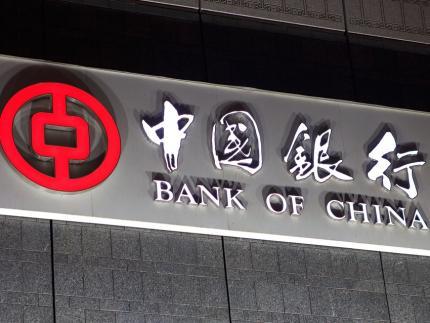
The State Administration of Foreign Exchange, China’s foreign exchange regulator, has imposed annual limitations on cash withdrawals outside China on China UnionPay bank cards, the Wall Street Journal learned on Tuesday. The limitations are reportedly contained in a circular SAFE, as the regulator is known, sent to banks.
Cardholders, under the new rules, may withdraw a maximum 50,000 yuan ($7,854) in the last three months of this year and a maximum 100,000 yuan next year.
Because UnionPay processes virtually all card transactions in China, the new limits apply to all Chinese credit and bank cards. Beijing already imposes a 10,000-yuan daily limit on withdrawals.
And why should the rest of the world care about how much money a holder of a Chinese credit card can get from an ATM in, say, New York? The new rules could be the first in a series of measures leading to draconian prohibitions of transfers of money from China.
Draconian prohibitions, in turn, could spark a global panic.
Capital has been flowing out of China at a fast pace for more than a year, but the rate has been accelerating recently. In August, for instance, the country’s official foreign exchange reserves dropped by a stunning $93.9 billion according to SAFE, the biggest fall on record. Some analysts, however, had expected Beijing’s cash hoard to plunge by $150 billion, and it’s possible SAFE has underreported the outflow to avoid creating alarm.
Yet it’s hard for Chinese leaders to mask the situation. Wind Information, China’s leading financial data provider, says money is coming out of the country at the rate of $135 billion a month, net of inflow. That assessment appears more or less correct. Capital outflow in August, according to Bloomberg, was a record $141.7 billion, which topped July’s record of $124.6 billion. Goldman Sachs puts the August outflow at $178 billion.
The global financial community has been focusing on the wrong crisis in China. Beijing’s efforts to prevent the collapse of equity values by massive purchases of stocks have received wide publicity since early July, but these purchases do not pose an immediate challenge to China’s technocrats. They are, after all, using their own currency to acquire shares, and they can print as much of it as they like, especially because the country is in a general deflationary era.
What is critical however, is Beijing’s defense of the renminbi. The People’s Bank of China, the central bank, began devaluing the currency on August 11th in a move that continues to puzzle observers. In any event, the devaluation triggered a run. Chinese officials, therefore, had to mount a heroic defense of the renminbi.
The only way Beijing can support its currency is to sell foreign exchange, in most cases the dollar. Reporting by the Financial Times at the end of August suggested that China was selling dollars at the rate of about $20 billion a day for this purpose. At that “burn” rate, Beijing could use up all its foreign exchange reserves in a year.
The outflow of forex is offset by investments and trade surpluses, but as investment returns decline along with confidence in China’s slowing economy and clumsy government, the outlook for accumulation of foreign exchange does not look promising.
In view of the situation, Chinese leaders have apparently felt compelled to protect their foreign cash. On September 17th, SAFE, citing “panic,” tried to inhibit outbound transfers of cash. The move, however, was merely a signal, in the form of calming words, from a senior official of that regulator. SAFE’s soft touch obviously did not work. This week’s limitation is a concrete step stopping money transfers that once were legal.
Beijing now finds itself in what looks like a no-win situation. If it does nothing, cash will continue to gush out of China.
If, on the other hand, China acts to stem the outflow, it could make an already bad situation worse. Actions that are too radical can create a panic. Moves not radical enough will probably hasten outflows because holders of cash will think they have only a limited opportunity to transfer their wealth to safer jurisdictions.
At this late date, confidence is eroding quickly, and China’s technocrats are finding their options narrowing and prospects dimming.
OG Image: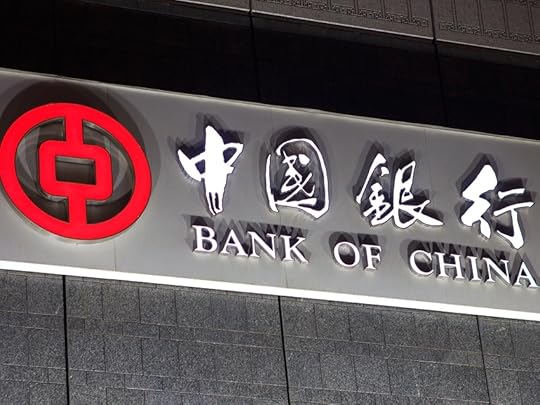 Asia PacificChinaStock MarketEconomyCapital Controls
Asia PacificChinaStock MarketEconomyCapital Controls
September 29, 2015
China Intercepts US Aircraft Over Yellow Sea in Dangerous Maneuver
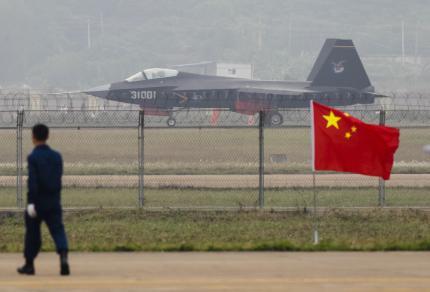
On September 15th, a Chinese military jet intercepted a US Air Force RC-135 reconnaissance aircraft over the Yellow Sea, about 80 miles east of China’s northern Shandong Peninsula. The Chinese jet crossed the nose of the American plane, passing within 500 feet, a dangerous maneuver.
The US regularly conducts surveillance flights over international water along China’s coast, airspace that Beijing wrongly claims to be its own. As a result, there has been a series of Chinese intercepts of these flights.
“One of the maneuvers conducted by the Chinese aircraft during this intercept was perceived as unsafe by the RC-135 air crew and at this point, right now, there’s no indication this was a near collision, but the report that came back was that the plane operated in an unsafe fashion,” said Pentagon spokesman Peter Cook last week.
It’s not the first time. In April 2001, a Chinese jet pilot was killed after he clipped the wing of a Navy EP-3 over the South China Sea, off Hainan island. More recently, in August of last year, a Chinese jet executed a dangerous barrel roll, at close range, over another Navy plane, above the same body of water.
Until now, American administrations have sought to minimize these dangerous intercepts through quiet diplomacy with the People’s Liberation Army. “The department has made tremendous progress with respect to reducing risk between our operational forces and those of the People’s Republic of China,” said Commander Bill Urban, Pentagon spokesman, after the September 15th incident. “Over the past year, we have seen improvements in PRC behavior, specifically the safety and professionalism with which they intercept our aircraft.”
If China had indeed responded to America’s diplomacy, why then did Beijing choose to return to its aggressive behavior in the skies on the eve of President Xi Jinping’s visit to the United States?
“If China and the US cooperate well, they can become a bedrock of global stability,” Xi said in Seattle last week, in a keynote address just after his arrival. “Should they enter into conflict or confrontation, it would lead to disaster for both countries and the world at large.”
A conflict or confrontation? The Chinese military just deliberately created a confrontation. Are we to conclude China is opting for disaster, not peace?
OG Image: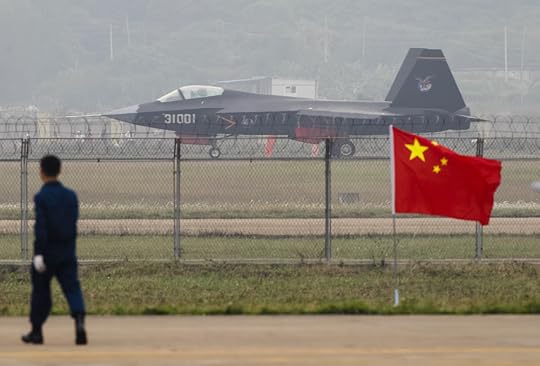 Asia PacificChinaUnited StatesChina MilitarySouth China SeaUS Military
Asia PacificChinaUnited StatesChina MilitarySouth China SeaUS Military
September 17, 2015
China Official Creates Controversy in Hong Kong
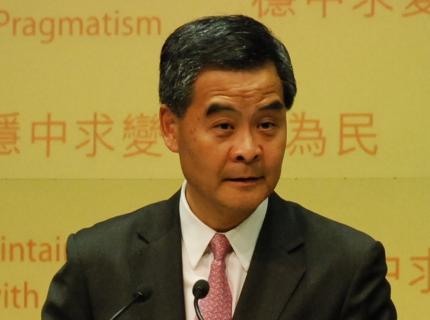
Tuesday, Leung Chun-ying, Hong Kong’s chief executive, lent support to controversial remarks made Saturday by China’s top official in Hong Kong. Zhang Xiaoming, head of Beijing’s Liaison Office, precipitated a new controversy over the weekend with comments about the supremacy of the powers of the city’s top political official.
Zhang said the CE, as the chief executive is sometimes called, has “a special legal position which overrides administrative, legislative, and judicial organs.”
Beijing, in the Sino-British Joint Declaration of 1984, promised Hong Kong “a high degree of autonomy” until 2047. The city has been a special administrative region of the People’s Republic since 1997.
Zhang’s words, delivered at an event marking the 25th anniversary of the promulgation of the Basic Law, are inconsistent with that governing document, which is often called the city’s “mini-constitution.”
Although the term “separation of powers” does not appear in the Basic Law, its provisions imply such separation, as even the generally Beijing-friendly South China Morning Post points out. Article 64, which requires the executive branch to “abide by the law and be accountable to the Legislative Council of the region,” still applies. So does Article 85 on judicial power.
Nonetheless, Zhang essentially denied limits applied to the chief executive. As one “pan-democrat” figure said, Zhang made the current chief executive an “emperor.” “Pro-Beijing” politicians tried to minimize Zhang’s remarks.
Zhang’s theory of governance would have been unpopular in all circumstances. It will, in all probability, be especially unwelcome in Hong Kong because Leung has lost most of the meagre support he had when he took office in 2012.
Zhang said he knew his comments would cause controversy. So why did he deliberately go out of his way to create one? “My guess is that this is the usual sort of brazen nonsense leading Beijing officials feel compelled to express from time to time,” noted Michael Davis, a professor of law at the University of Hong Kong, in written comments on Pangolinpol, a leading China listserve.
So why do Beijing officials feel compelled to do that in Hong Kong? Probably because they need to defend the indefensible, the notion that one of the most cosmopolitan and sophisticated populations on earth cannot govern itself. The Hong Kong chief executive is picked by a hand-selected group of electors and therefore lacks legitimacy. It should come as no surprise that all three men who have held the top spot in Hong Kong, each with a very different governing style, quickly lost support among the city’s people.
To remedy the situation, Beijing tried last year to enact a reform package that would have adopted universal suffrage but permitted China to control the nominating process. Hong Kong’s pan-democrats called the measures “fake democracy.” In June, Beijing’s “pro-establishment” allies in the Legislative Council, Hong Kong’s legislature, failed to enact the changes.
Over the last decade, Beijing itself has been losing the loyalty of Hong Kong people, not only common folk but also members of the city’s elite. One day, Chinese officials could be faced with legislation or a court decision they find unacceptable and need the chief executive to override the other branches of the Hong Kong government.
Zhang, therefore, may have just laid the groundwork for a constitutional coup.
OG Image: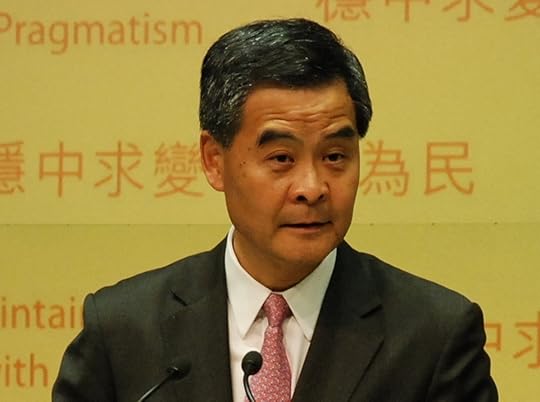 Asia PacificChinaHong Kong
Asia PacificChinaHong Kong
September 10, 2015
Chinese Warships Sail into American Waters

Last Thursday, the Pentagon confirmed five Chinese warships had sailed within 12 nautical miles of the Alaskan coast. The US, in accordance with international law, claims as territorial water a band of sea extending 12 miles from its shores. The Chinese vessels, therefore, entered American waters.
US authorities did not grant permission for the Chinese transit, and the waters in question are not an internationally recognized strait. The Pentagon did not complain, however, maintaining the warships “transited expeditiously and continuously through the Aleutian Island chain in a manner consistent with international law.” As a US official explained to CNN, the intrusion constituted “innocent passage.”
“Innocent passage” is a vague international law concept. In general, warships can transit through the territorial waters of a coastal state if they have no hostile intent and do not engage in certain activities.
The US, for instance, often does not protest Russian ships passing within 12 miles of Alaskan coasts. As a Pentagon official told CNN, the US does not prevent vessels making quick transits through US territorial waters to be consistent with Washington’s position that other nations cannot close off international seas.
So was the Chinese transit, which probably took place last Wednesday night or Thursday morning, truly “innocent”?
The Chinese ships, before their controversial transit, were exercising with Russian vessels off the coast of Vladivostok. Military analysts wondered why China contributed an oiler to a drill so close to China, but then that became clear.
After the conclusion of the drill, the Chinese ships—three surface combatants, an amphibious landing ship, and the oiler—sailed not south back to China but about 3,000 kilometers northeast—from the waters off Vladivostok into the Bering Sea, traveling between Russia’s Kamchatka peninsula and the Alaskan island of Attu. On the trip north, the flotilla stayed in international water the whole way.
On the return, however, China’s ships left the Bering Sea by passing east of Attu to enter the Pacific Ocean, coming within 12 nautical miles of the American coast. The operation in the Bering Sea was a first for the navy of the People’s Republic.
In short, Chinese vessels traveled 6,000 kilometers just so they could brush American shores. Moreover, the flotilla intruded onto American waters at about the same time President Obama was in Alaska.
As just about every military analyst in Asia noted, the Chinese meant the passage to be provocative, “designed to send a message” as the South China Morning Post put it. Given the ambiguities of “innocent passage” and the apparently hostile nature of the exercise, therefore, Washington could have denied the Chinese ships free passage or lodged a protest afterwards.
We have to remember Beijing often does not recognize innocent passage in waters off its own coast and continually denies the US Navy has a right to be in the international waters of the South China Sea. An arrogant Beijing now believes it can do what it wants and perhaps takes American restraint as a sign of weakness, especially in light of the Obama administration’s reluctance to allow the US Navy to conduct “freedom of navigation” exercises in the South China Sea.
Complacent American policymakers—many of them in naval uniforms—assume the Chinese understand the dominance of the US Navy and are deterred. Yes, China’s military planners can count ships and planes just as well as American admirals can, but the Chinese don’t necessarily think in ship-versus-ship terms. They apparently think—maybe correctly—Washington has little or no will to confront them. So in East Asia, likely the most dangerous spot on earth, deterrence is eroding.
Therefore, this would be the perfect time for the US Navy to make a transit inside China’s 12-mile band, perhaps in the strait separating the Chinese mainland from Hainan Island. Failing to respond now would allow the concept of freedom of navigation—and with it the notion of a broad global commons—to deteriorate even further.
The best way to preserve every nation’s right to the seas is to sail through them, and the Chinese just made the need to do so even more urgent.
OG Image: Asia PacificChinaUS
Asia PacificChinaUS
September 1, 2015
Beijing at the Corner of Desperation and Panic

Monday, China Central Television, the state broadcaster, carried the “confession” of a weary Wang Xiaolu. The journalist from Caijing Magazine, a prominent financial publication, admitted to adding his “own subjective judgment” to information he obtained “through private channels” about the central government’s stock rescue plan.
Wang’s crime, in Beijing’s eyes, was to pen a July 20th article stating that the China Securities Regulatory Commission was considering halting intervention in the Chinese stock market. Since early July, the central government had been buying blue chip stocks in an effort to keep prices high.
Wang may have been premature—Beijing did not stop wide-scale intervention until early last week—but his article captured the disagreements inside Beijing’s policy circles. Authorities detained him August 25th and, according to state media, placed him under “criminal compulsory measures.”
China has just detained, according to its own account, 197 journalists and bloggers who reported or commented on the country’s recent troubles, from the Tianjin chemical explosion to the stock market plunge to the weakening currency to the crumbling economy.
And that’s not all. On Tuesday, CCTV broadcasted the confession of Liu Shufan, a securities regulator, and reported confessions of four senior officials of Citic Securities. Li Yifei, a leading hedge fund manager in China, is being questioned by police and, despite a denial from her husband, looks to be in custody. Beijing, it appears, is conducting a broad-based attack on China’s financial industry.
The Washington Post correctly called Wang’s confession “deeply problematic.” Beijing’s airing of a Cultural Revolution–style apology on television—something Chinese authorities have resorted to in the last couple years—suggests that China’s political system is fast regressing toward its Maoist origins.
Why should we be concerned about the fate of Wang Xiaolu? China’s problems, unfortunately, have a way of radiating out across the world.
Take its stock market bubble. At first glance, it is extraordinary that share prices rose more than 150 percent in less than a year, especially because the climb occurred during a period of falling earnings and slowing growth. On second glance, however, there is no mystery. The rise was almost entirely the result of a reckless Communist Party decision last year to inflate share values through nothing more than government cheerleading. That is why the fall in prices, which began June 15th, has Beijing leaders feeling especially vulnerable.
Predictably, Chinese officials are blaming just about everyone but themselves. For instance, last week President Xi Jinping picked on the Dalai Lama, charging him and his Tibetan community in India with committing “economic terrorism against the Chinese people and their economy.”
That’s ludicrous. Also implausible is Beijing in July blaming Morgan Stanley for spreading a “malicious remark” and causing the stock market rout for an “ulterior motive.” And it was not party propaganda hacks that targeted the New York–based investment bank. It was the well-regarded technocratic officials from the People’s Bank of China, the central bank, who leveled this grossly inappropriate charge.
And in August Beijing identified a new villain, this time the US Federal Reserve. And why is the Fed at fault for tanking China’s share markets? It is thinking of raising interest rates in America. The plan to move beyond essentially zero rates has been known for months and in fact had little or nothing to do with the fall of China’s artificially inflated stock values.
The wild allegations of Chinese officials are indications they are now flailing about. Beijing, we can see, is at the corner of desperation and panic.
OG Image: Asia PacificChinaChina EconomyStock MarketGlobal Economy
Asia PacificChinaChina EconomyStock MarketGlobal Economy
August 28, 2015
Guess Who’s Coming to China’s Military Parade
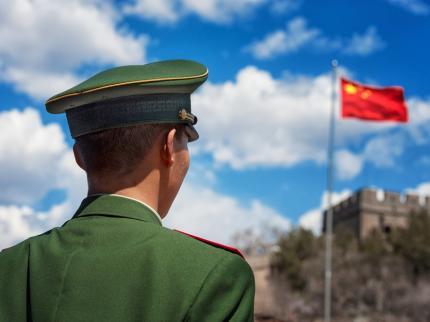
Tuesday, Beijing revealed the list of countries participating in its military parade, scheduled for September 3rd, commemorating the 70th anniversary of the defeat of Japan in the Second World War.
Belarus, Cuba, Egypt, Kazakhstan, Kyrgyzstan, Mexico, Mongolia, Pakistan, Serbia, Tajikistan, and Russia will each send about 75 marchers. Afghanistan, Cambodia, Fiji, Laos, Vanuatu, and Venezuela will contribute about seven troops each. The 17 countries, Beijing said, will chip in about 1,000 soldiers.
This is an odd group celebrating the end of World War II in the Pacific. Fiji remained untouched in the struggle, but can at least say it’s in the Pacific. Belarus, on the other hand, resides in Europe. It did not exist 70 years ago. When Japanese diplomats signed instruments of surrender on the deck of the Missouri, the territory that now comprises Belarus was part of the Soviet Union.
The Soviets fought the Japanese empire—for about a week. Moscow entered the war on August 8, 1945, two days after the Enola Gay dropped an atomic bomb on Hiroshima and one day before the destruction of Nagasaki. You would think President Vladimir Putin would be embarrassed by the festivities in Beijing, which have the potential of highlighting his country’s meagre participation.
And his Chinese counterpart, President Xi Jinping, is playing an even riskier game. China suffered more than any other country at the hands of Japan during the war—perhaps 20 million dead—but Xi’s People’s Republic of China, ruled by the Communist Party, has little right to take credit for the victory seven decades ago.
As general secretary of the party, he stands in a line of rulers beginning with Mao Zedong. Mao spent World War II—what Beijing has renamed the Chinese People’s War of Resistance against Japanese Aggression—avoiding fighting Japan. His forces engaged the invading troops in only one major offensive campaign, and he punished his general, Peng Dehuai, for conducting it.
Mao let Chiang Kai-shek, the leader of the Nationalist forces, do almost all of the fighting against the Japanese. As a result, Chiang’s army was weakened by the end of the conflict, and Mao was able to chase him and his diminished forces to Taiwan in the late 1940s. Taiwan’s current president, Ma Ying-jeou, will not be on the rostrum on September 3rd in Tiananmen Square to see more than 10,000 stone-faced troops of the People’s Liberation Army goose-stepping through the center of Beijing.
And what about the three countries that in fact led the fight against the Japanese? You can watch the whole parade, but you will not find a single solider from Australia, the United Kingdom, or the United States.
In short, Xi will be celebrating a victory the Communist Party did not win. The actual victors, on the other hand, are more interested in reconciliation and healing in Asia.
OG Image: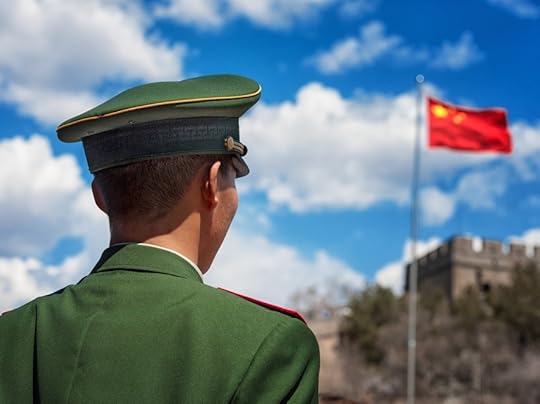 Asia PacificChinaMilitary
Asia PacificChinaMilitary
August 20, 2015
Obama Toughens Stance Against China's 'Fox Hunt'
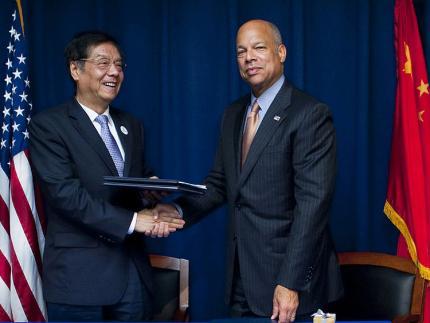
On Monday, Beijing revealed that the US had demanded it withdraw agents from American soil.
The revelation came on the same day of a CNN report saying US officials had confirmed that they had told China to stop covert operations in the US aimed at pressuring Chinese citizens to return to China.
The activity, part of Beijing’s “Fox Hunt” and “Sky Net” operations, was illegal, Washington reportedly told Chinese officials. CNN’s confirmation followed New York Times reporting on the topic Sunday.
Since becoming China’s leader in November 2012, Xi Jinping has been conducting a relentless “anticorruption” campaign. During his wide-ranging effort, there have been no known prosecutions of his family members, who have amassed substantial wealth in recent years, or his political supporters. At the same time, he has prosecuted political adversaries on corruption charges and jailed anticorruption activists. In other words, Xi’s effort looks less like a law-enforcement effort and more like a political purge.
The Obama administration initially helped Beijing repatriate Chinese officials who fled China, but evidently there was a change of view in Washington. According to the Times, the warning, which had been delivered “in recent weeks,” reflected “escalating anger in Washington” about the “intimidation tactics” used by Chinese agents. Those agents, from the Ministry of Public Security, had apparently entered the US and operated on American soil without approval from the administration.
“The harassment, which has included threats against family members in China, has intensified in recent months,” an unnamed official told the Times.
On Monday, Beijing issued its response to the US. Its answer revealed for the first time that the Obama administration had in fact ordered Chinese agents to leave the US “immediately.” The New York Times reporting had suggested only that the step was under consideration.
Beijing is apparently upset. Xinhua News Agency reported that Homeland Security Secretary Jeh Johnson met with Public Security Minister Guo Shengkun in Beijing in April and “agreed to strengthen cooperation in law enforcement.” “Specifically, Johnson also promised to actively support China’s ‘Sky Net’ and ‘Fox Hunt’ operations,” the official media outlet claimed. The Xinhua report also contained this line: “China’s operation is legitimate and has been approved in bilateral agreements reached earlier this year.”
It’s unlikely the Obama administration agreed to Chinese agents operating in America without Justice Department approval, but it also seems clear that China was never going to take “no” for an answer. “Our principle is thus: Whether or not there is an agreement in place, as long as there is information that there is a criminal suspect, we will chase them over there, we will take our work to them, anywhere,” the Times quotes Liu Dong, described as a “director” of Operation Fox Hunt, as saying.
Chinese officials are known to be arrogant, but where would they get the idea that they could violate American sovereignty by sending their law enforcement agents into the US without prior notification and approval? In the past, Beijing’s agents operated almost openly in the US, especially on college campuses where they closely monitored Chinese students. Moreover, Chinese agents have apparently organized those students to demonstrate either in support of visiting Chinese leaders or against figures Beijing abhors, such as the Dalai Lama. It is unknown whether Washington ever complained, but those activities continued over a period of time, suggesting a measure of official American tolerance.
However, as Beijing now presses the US on various fronts, it appears American tolerance is wearing thin. The US has been pushed from all sides—from the massive hacking of federal databases, to interceptions of US Navy vessels on, and aircraft over, the international space of the South China Sea, to predatory actions against American companies operating in China. Beijing has seized a shoal from the Philippines in violation of every norm of conduct and in violation of an agreement brokered by Washington. Its devaluation of the renminbi last week is reviving concerns of currency manipulation. Beijing’s accusations against America have become vituperative.
So the administration’s impatience over Beijing’s fox hunting is not a bad thing. Late, of course, is better than never.
OG Image: Asia PacificNorth AmericaUSChinaBarack ObamaObama
Asia PacificNorth AmericaUSChinaBarack ObamaObama
Obama Toughens Stance Against China's 'Fox Hunt"

On Monday, Beijing revealed that the US had demanded it withdraw agents from American soil.
The revelation came on the same day of a CNN report saying US officials had confirmed that they had told China to stop covert operations in the US aimed at pressuring Chinese citizens to return to China.
The activity, part of Beijing’s “Fox Hunt” and “Sky Net” operations, was illegal, Washington reportedly told Chinese officials. CNN’s confirmation followed New York Times reporting on the topic Sunday.
Since becoming China’s leader in November 2012, Xi Jinping has been conducting a relentless “anticorruption” campaign. During his wide-ranging effort, there have been no known prosecutions of his family members, who have amassed substantial wealth in recent years, or his political supporters. At the same time, he has prosecuted political adversaries on corruption charges and jailed anticorruption activists. In other words, Xi’s effort looks less like a law-enforcement effort and more like a political purge.
The Obama administration initially helped Beijing repatriate Chinese officials who fled China, but evidently there was a change of view in Washington. According to the Times, the warning, which had been delivered “in recent weeks,” reflected “escalating anger in Washington” about the “intimidation tactics” used by Chinese agents. Those agents, from the Ministry of Public Security, had apparently entered the US and operated on American soil without approval from the administration.
“The harassment, which has included threats against family members in China, has intensified in recent months,” an unnamed official told the Times.
On Monday, Beijing issued its response to the US. Its answer revealed for the first time that the Obama administration had in fact ordered Chinese agents to leave the US “immediately.” The New York Times reporting had suggested only that the step was under consideration.
Beijing is apparently upset. Xinhua News Agency reported that Homeland Security Secretary Jeh Johnson met with Public Security Minister Guo Shengkun in Beijing in April and “agreed to strengthen cooperation in law enforcement.” “Specifically, Johnson also promised to actively support China’s ‘Sky Net’ and ‘Fox Hunt’ operations,” the official media outlet claimed. The Xinhua report also contained this line: “China’s operation is legitimate and has been approved in bilateral agreements reached earlier this year.”
It’s unlikely the Obama administration agreed to Chinese agents operating in America without Justice Department approval, but it also seems clear that China was never going to take “no” for an answer. “Our principle is thus: Whether or not there is an agreement in place, as long as there is information that there is a criminal suspect, we will chase them over there, we will take our work to them, anywhere,” the Times quotes Liu Dong, described as a “director” of Operation Fox Hunt, as saying.
Chinese officials are known to be arrogant, but where would they get the idea that they could violate American sovereignty by sending their law enforcement agents into the US without prior notification and approval? In the past, Beijing’s agents operated almost openly in the US, especially on college campuses where they closely monitored Chinese students. Moreover, Chinese agents have apparently organized those students to demonstrate either in support of visiting Chinese leaders or against figures Beijing abhors, such as the Dalai Lama. It is unknown whether Washington ever complained, but those activities continued over a period of time, suggesting a measure of official American tolerance.
However, as Beijing now presses the US on various fronts, it appears American tolerance is wearing thin. The US has been pushed from all sides—from the massive hacking of federal databases, to interceptions of US Navy vessels on, and aircraft over, the international space of the South China Sea, to predatory actions against American companies operating in China. Beijing has seized a shoal from the Philippines in violation of every norm of conduct and in violation of an agreement brokered by Washington. Its devaluation of the renminbi last week is reviving concerns of currency manipulation. Beijing’s accusations against America have become vituperative.
So the administration’s impatience over Beijing’s fox hunting is not a bad thing. Late, of course, is better than never.
OG Image: Asia PacificNorth AmericaUSChinaBarack ObamaObama
Asia PacificNorth AmericaUSChinaBarack ObamaObama
August 11, 2015
China to Build Olympic Site in Nature Reserve
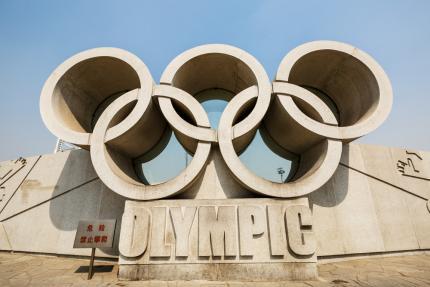
Earlier, outdoor enthusiasts had charged that municipal authorities were planning to build the alpine ski course and sledding tracks in the Songshan National Nature Reserve, considered an “ecological barrier” protecting the urban portion of Beijing from seasonal winds and sand blowing from the north.
Beijing, in its bid documents, apparently told the International Olympic Committee that events would be held adjacent to the sensitive reserve, in the northwest portion of the sprawling Beijing municipality. Yet activists and others, after examining IOC photographs, satellite images, and official Chinese geographic coordinates, determined that the municipality had reserved sites inside Songshan for the Games. Censors took down blog postings on the matter.
On Friday, Zhang Suzhi, executive deputy head of Beijing’s Yanqing County, revealed that Songshan’s boundaries had been redrawn to exclude approximately 1,100 hectares. “The location of the Winter Olympic venues are not included in the reserve after the adjustment,” she noted in comments carried by the Beijing News on Friday. She did not say when the boundary lines had been shifted.
Perhaps there was no adjustment. Hong Kong’s South China Morning Post revealed that, on the day she spoke, Songshan’s official website showed that the land in question was still listed as a “core area” in the reserve. The only human activity permitted in core areas is scientific research.
Zhang also claimed that 2,655 hectares of Little Haituo Mountain had been added to Songshan, making the preserve about a third larger. The Yanqing official said, as a result of the addition, the reserve included nine more types of vegetation. Critics challenge the claim, however. Amateur botanist Zhou Zhuocheng, for instance, said existing data was inconsistent with Zhang’s assertions.
No surprise that Zhang was having trouble with the truth. There were, from the get-go, severe ecological concerns with Beijing’s bid for the Games. Venues for many of the events had to be carved out of pristine areas, and flake-making was always going to damage the area. Beijing’s bid slogan—“Joyful Rendezvous upon Pure Ice and Snow”—was ironic as the white stuff in the area averages a depth of only five centimeters, meaning almost all of it in 2022 will be artificial.
Moreover, there are other threats to the environment. Officials view the 2022 extravaganza as an opportunity to build in areas surrounding the two faraway Olympic venues, Yanqing County and the city of Zhangjiakou in Hebei Province. “It’s now time for Beijing to help propel development in its surrounding region,” said Ma Qingbin of the China Centre for International Economic Exchanges, a government think tank, conveying the Chinese government’s ultimate plans.
Ms. Zhang on Friday suggested the development of the Songshan reserve will be “sustainable.” Now that the Chinese capital has won the right to host the Games—they were awarded July 31th—she and other Chinese officials are beginning to ignore the pledges they made in their bid. Said Beijing environmentalist Annie Zhu, “the authorities need to know that the world is watching the country’s green promises for such iconic events.”
By carving out a large chunk of a national nature preserve for the Games, China’s officials don’t seem to care what the world—or their own people—think.
OG Image: Asia PacificChinaChina Olympics
Asia PacificChinaChina Olympics
August 6, 2015
Taiwan Students Storm Education Ministry

Students in Taiwan are continuing their occupation of the courtyard of the Education Ministry in Taipei, objecting to changes to textbooks scheduled to be delivered to schools during the week. Talks with ministry officials have gone nowhere.
The students, many of them still in high school, had broken into the compound on Friday following the suicide, a day earlier, of Lin Kuan-hua, a 20-year-old leader of the demonstrators. Students say Lin took his life in “a silent protest.”
The occupation followed a similar disturbance beginning July 23rd when students barricaded themselves in the office of the embattled education minister, Wu Se-hwa. As Reuters reports, the increasingly defiant acts, the largest on the island in more than a year, reflect “a surge of nationalism among Taiwan’s youth, who are far more likely than their elders to identify as Taiwanese rather than Chinese.”
The changes to the textbooks are controversial because they touch on identity. The revised texts state Taiwan was “recovered by China” instead of “given to China” at the end of Japanese rule in 1945. They also label the island as “Japan occupied.” Prior to the revision, they referred to “Japan governing” Taiwan.
Students charge the new wordings are “China-centric.” The education ministry, on the other hand, defends the revisions as an effort at “de-Japanization,” not “de-Taiwanization.”
Because the telling of history is considered the key to the future of the island, Minister Wu is doggedly trying to push through changes, some seemingly minor, in the face of determined opposition. His party, the Kuomintang, stands for political union with China. Both the ruling party and local Taiwanese see education as the key battleground in shaping identity.
The Kuomintang in the late 1940s fled to Taiwan after losing the civil war to Mao Zedong’s Communist Party and then harshly suppressed Taiwan language and culture as a means of establishing its rule. Today it is again Taiwan’s ruling party, and although it still maintains it is the legitimate government of “China,” it has had to give in to pressure and allow more schooling on Taiwan subjects. Whether this relaxation is a cause or effect, studies show progressively fewer in Taiwan consider themselves to be Chinese. An American Enterprise Institute study released late last year, for instance, shows 60.4 percent of citizens say they are “Taiwanese” versus 3.5 percent responding “Chinese.”
As more people on the island embrace local history and culture, the possibility of “re-unification,” the term favored by the ruling party, or “unification,” the word used by Taiwanese who claim China has never ruled them, becomes increasingly remote. Kuomintang stalwarts, unrealistically, want to do everything they can to reverse Taiwan consciousness while they still govern—or “occupy,” as some Taiwanese would put it.
At least at this moment, it does not appear the ruling party has much time left, so it is pushing through its agenda as fast as it can. Most every analyst now believes the Democratic Progressive Party will win the presidency in January. And in the last few weeks there is even talk that the DPP, sometimes referred to as “pro-independence,” will also win a majority of seats in the Legislative Yuan, the national legislature. A sweep of the executive and legislature for the DPP would be unprecedented.
The DPP, founded by Taiwanese in 1986, could be the beneficiary of the civil disobedience that has rocked the island since March of last year when other students, now dubbed the Sunflower Movement, occupied the Legislative Yuan for 23 days. Then, the issue was the Kuomintang ramming a services trade agreement with China through the legislature. Yet the new air of defiance in society is not partisan, as it transcends party affiliation.
In any event, it is clear that most Taiwan voters are angry about the hardheadedness of the Kuomintang, which has not bowed to public opinion on “China” issues. President Ma Ying-jeou, for instance, opened his party up for a historic rout in November by insisting on making local elections a referendum on his derided cross-strait policies. Then to make matters worse, last month his party inexplicably nominated a fiery pro-China presidential candidate, Hung Hsiu-chu, thereby rejecting moderate figures who actually had a much better chance of winning in January.
DPP officials privately rejoiced at the selection of Hung, known as the “Little Hot Pepper” for her extremist comments, but the selection of the Kuomintang’s weakest candidate has broader significance than the outcome of any single election.
Taiwan’s ruling party appears to be making a last-gasp effort to enforce its vision of a grand Chinese union across the Taiwan Strait. And high school students storming government buildings show that Taiwan society is absolutely determined to protect its sense of self.
OG Image: Asia PacificChinaTaiwan
Asia PacificChinaTaiwan
Gordon G. Chang's Blog
- Gordon G. Chang's profile
- 52 followers



